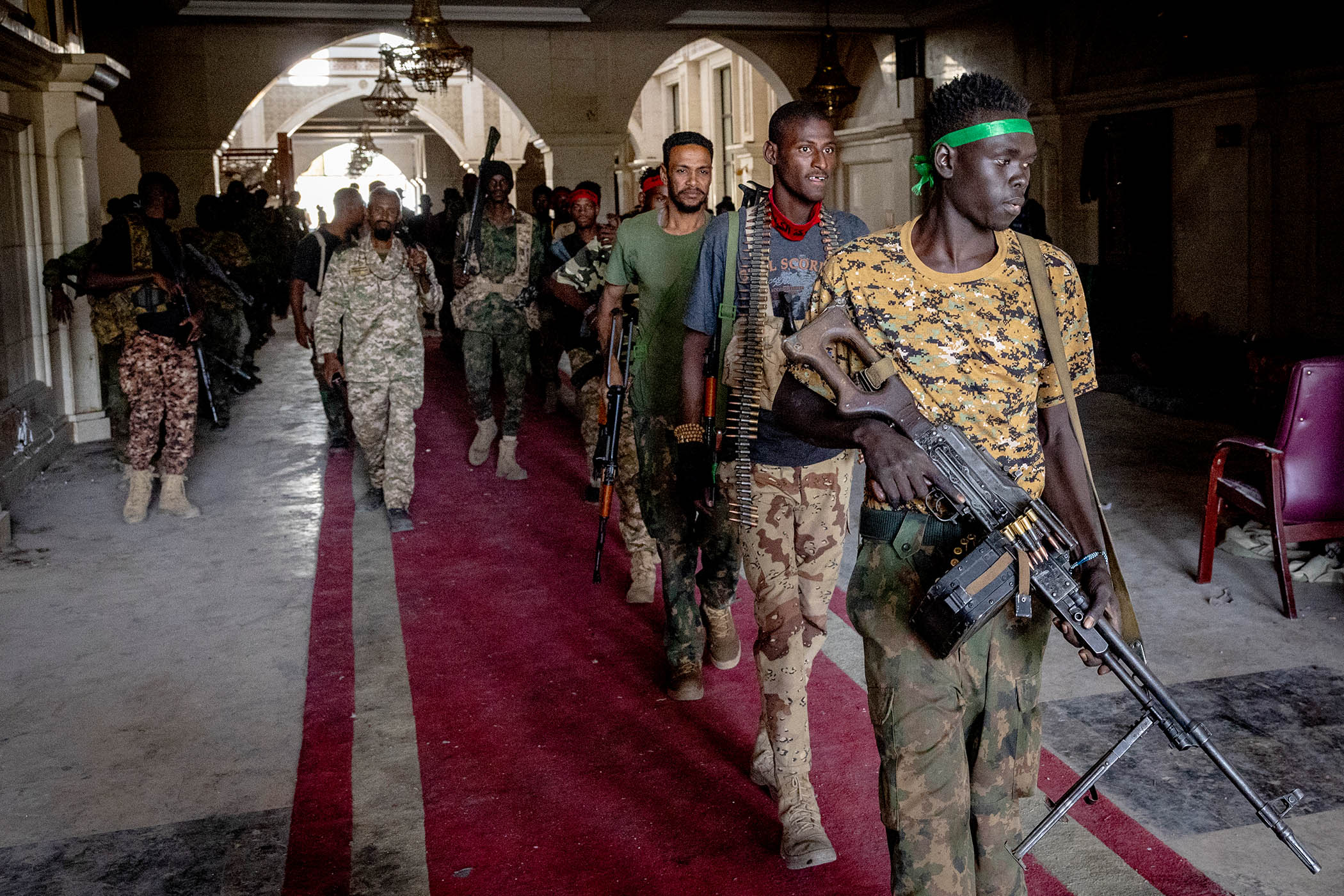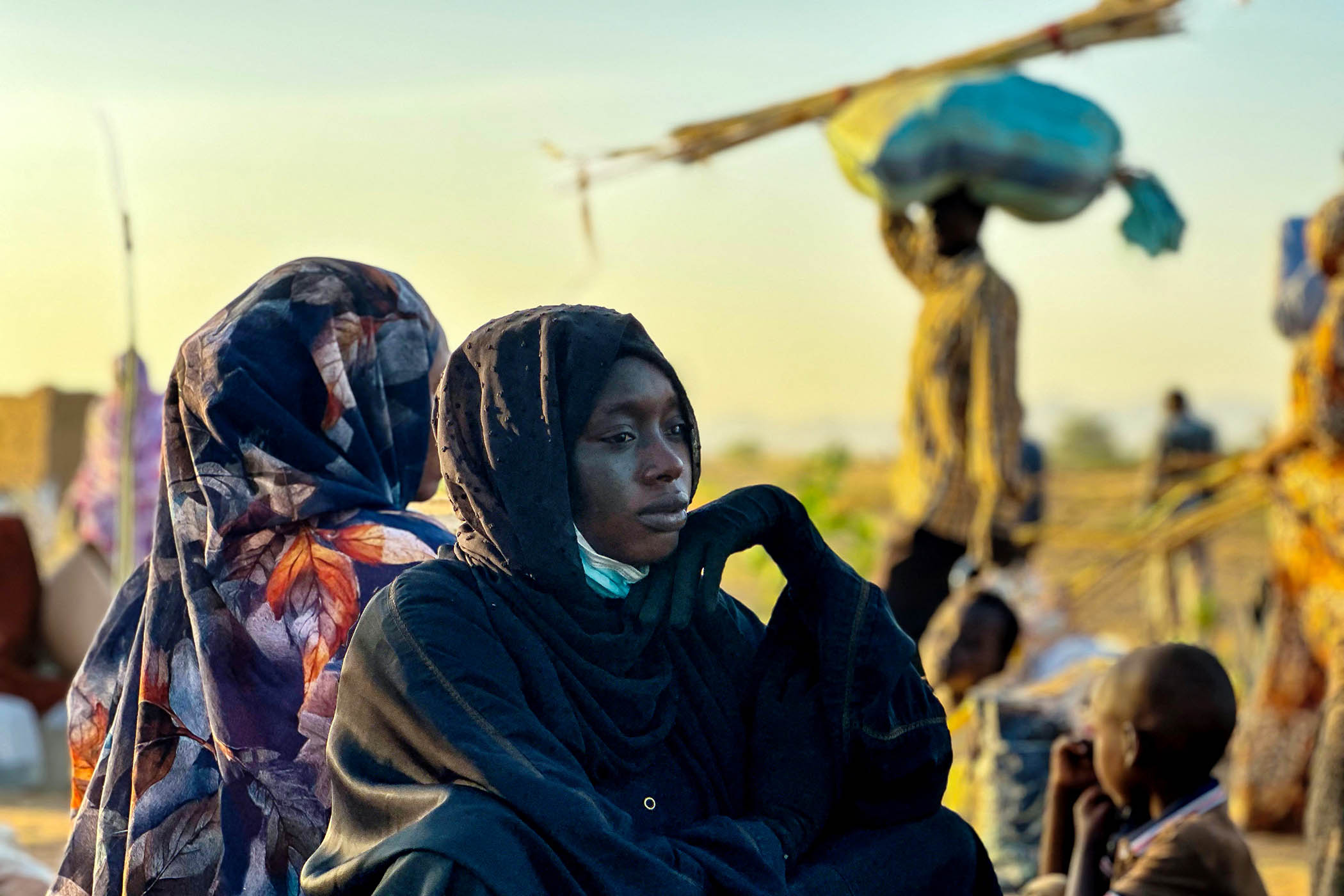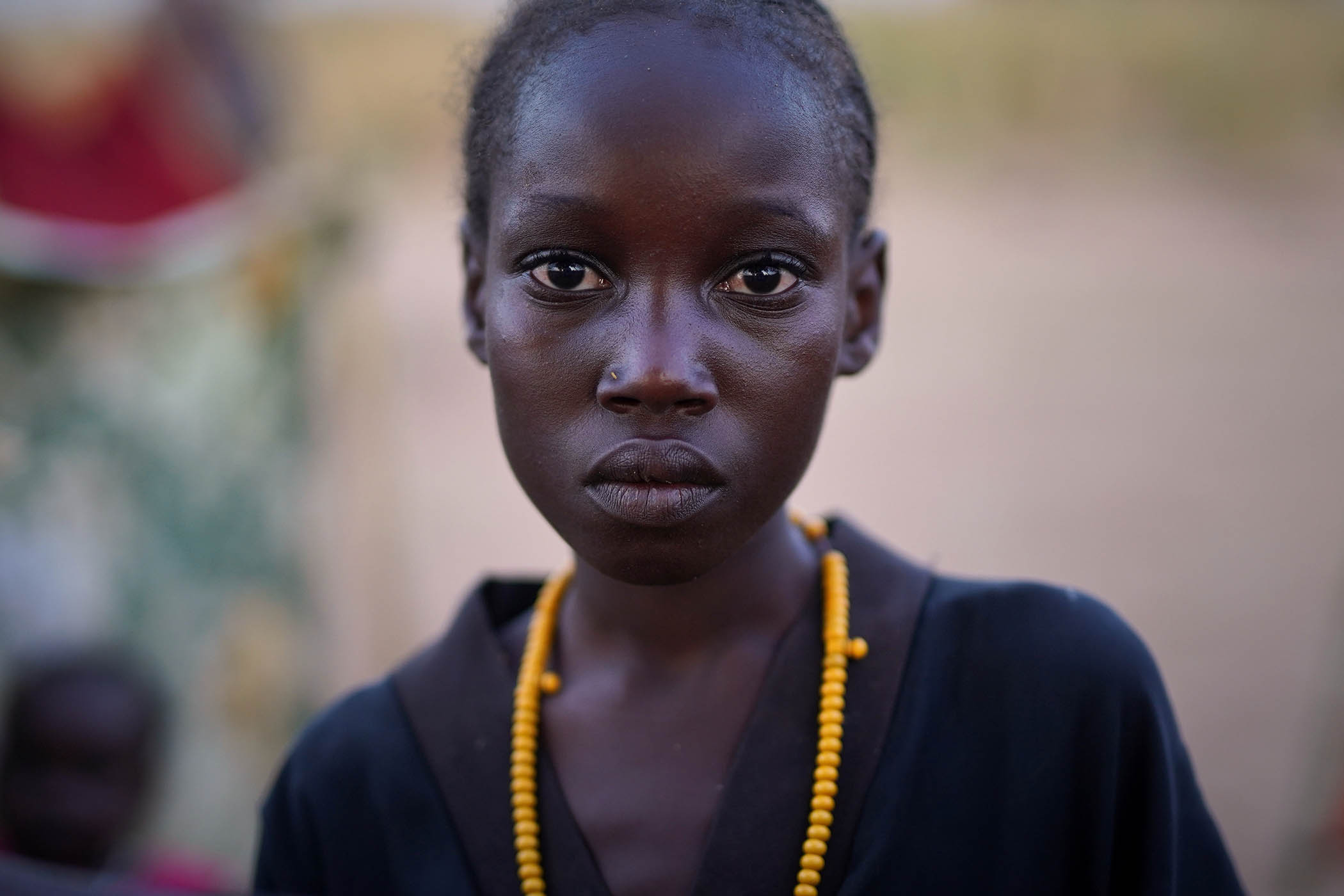The women from El Fasher stood in the soup kitchen and wept. Every day brings more bad news from their relatives back home, even as they recover from their 620-mile trek from Darfur to the Sudanese capital, Khartoum.
“We need someone to rescue our families,” said Masaid Ahmed Azrag, drawing a pink headscarf across her face to wipe her tears. “There’s no food or medicine – they’re dying of hunger. Little children are living off animal feed. The next day, they’re found dead.”
Since May last year, El Fasher, the capital of North Darfur state, has been besieged by the Rapid Support Forces (RSF), a paramilitary group fighting the Sudanese Armed Forces (SAF). The two militaries ruled Sudan together after staging a coup against the civilian government in 2021. Two years later, the RSF attacked SAF installations.
Overnight, allies became enemies and the war began. The victims are the people of Sudan. No one knows how many have been killed in massacres or died from malnutrition and disease, as neither party allows data collection or humanitarian access. The UN says more than 14 million have been displaced and about 25 million – half the population – need relief aid.
Romana Adan Maaki, a black yashmak covering her nose and mouth, described the conditions that had made the women – about 30 members of the same extended family including children – bribe the RSF fighters to let them leave.
“In the morning, you couldn’t go out because the shelling was intense. And if it wasn’t the shelling, it was the mafia in the streets,” she said. “If you have daughters, they rape them. If you have sons, they beat them and claim they’re soldiers.”
RSF fighters, who are primarily from Arab tribes, routinely call non-Arabs “slaves”. They are the successor force to the Janjaweed – “devils on horseback” – who committed genocide against African people in Darfur in the early 2000s.
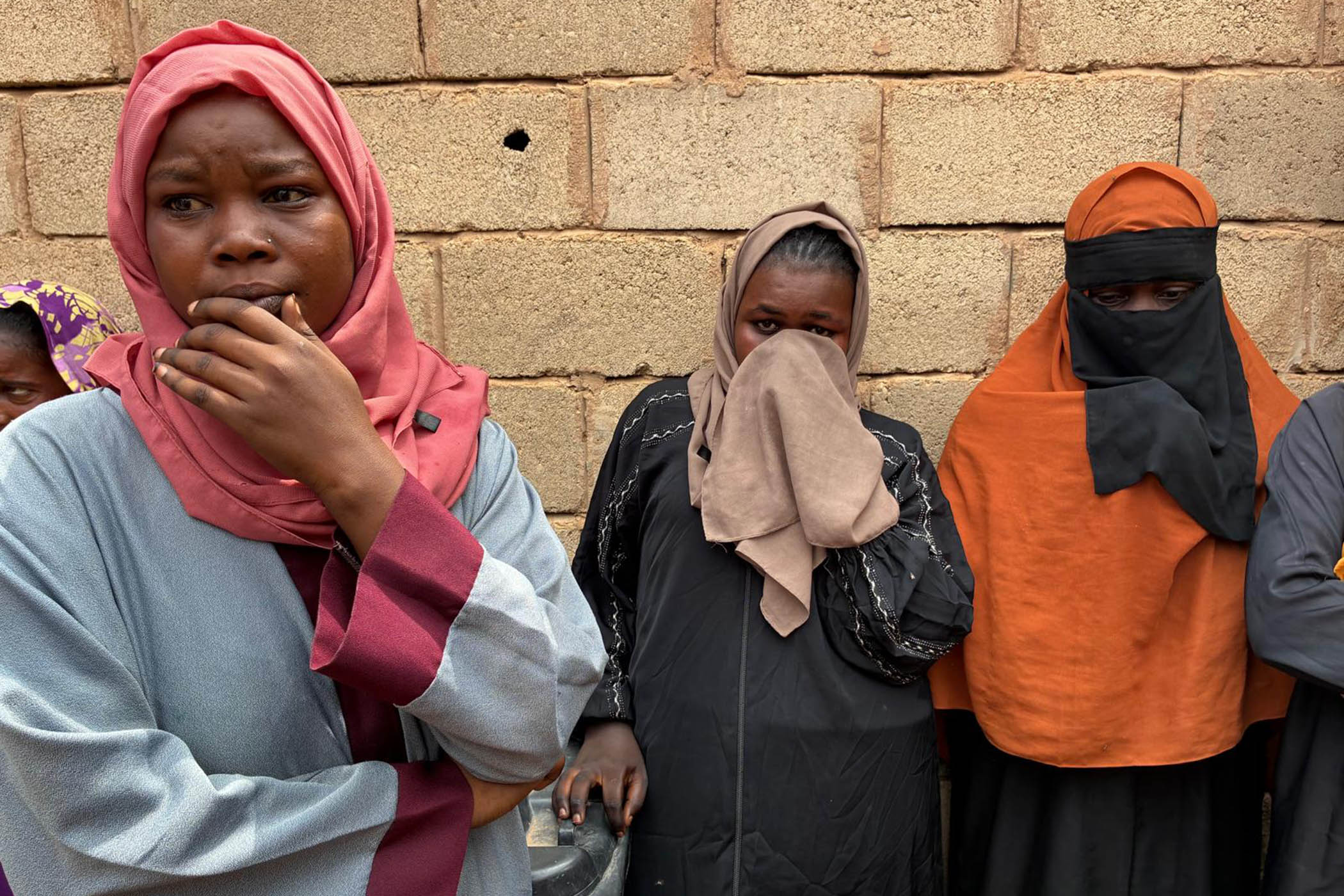
On the journey to Khartoum, RSF soldiers tried to seize the little boys, but the women screamed and held tightly onto their sons. “I’m a mother but I’m dark-skinned, so no one listens to me,” said Maaki. “I told them: ‘I’ve been taking care of these children throughout the war.’ He said: ‘Shut up, you slave.’”
Maaki had already lost one son. Ten-year-old Amjad was killed before they left El Fasher when shrapnel from a shell cut him in the stomach. They took him to the hospital, but there was no medicine. A photo on her phone showed a bright-eyed little boy – one of the uncounted children of Sudan whom no one has come to rescue.
After 15 days running the gamut of fighting men, walking across the desert and hitching rides on lorries, the women and children made it to south Khartoum, where they threw themselves on the mercy of strangers. Luckily, in Sudan, kindness co-exists with cruelty.
Newsletters
Choose the newsletters you want to receive
View more
For information about how The Observer protects your data, read our Privacy Policy
Saad Seraj, a 26-year-old maths graduate, helped them find a place to stay and brought them to the soup kitchen in the neighbourhood of Eid Hussain, where he and other volunteers provide lentil soup to 1,600 needy families a day.
Seraj is one of thousands of volunteers running the emergency response rooms (ERRs), an initiative providing food, medical care and other services to fellow Sudanese whose lives have been upended by war.
Many of the volunteers are young people who came out on the streets in a popular uprising in 2019 that caused the collapse of the sclerotic Islamist regime of Omar al-Bashir, who had ruled since a coup in 1989. Its roots, however, go back to the traditional Sudanese concept of “nafeer” – collective action.
“I’m not alone,” explained Seraj, who, like other educated Sudanese, could have left the country during the war, but chose to stay to volunteer instead. “We’re a big group organising with others abroad to reach people who need help. We’re showing society that there is a greater purpose in life.”
The ERRs – which are in contention for the Nobel peace prize to be announced on 10 October – were founded at the beginning of the war, when international aid agencies and diplomats fled Khartoum.
“We saw them get into big trucks and leave the capital as it was falling,” said Duaa Tariq, one of the founders and leaders of the ERRs. “I was shocked. That’s when we had to step in,” she added. The RSF controlled Khartoum for two years before the SAF drove the group out in May.
Many of the symbols of the state – ministries, the telecoms tower, the state oil company – have been destroyed and stand along the banks of the Nile like blackened skeletons. The RSF stripped copper wire from telephone cables and sabotaged electricity substations. Thousands of rusting, looted cars litter the streets.
Across Sudan, about 150 ERR volunteers have been killed, while others have been kidnapped for ransom, especially in RSF-controlled areas.
“They figured out that there are funds coming in, so they started targeting our coordinators – the ones who hold the money,” said Tariq.
The ERRs adapted by arranging for funds to be transferred electronically from diaspora Sudanese directly to merchants who sell food and other supplies.
‘We need to reject violence and to value other people, even if they are your enemy’
‘We need to reject violence and to value other people, even if they are your enemy’
Duaa Tariq, below, ERR founder
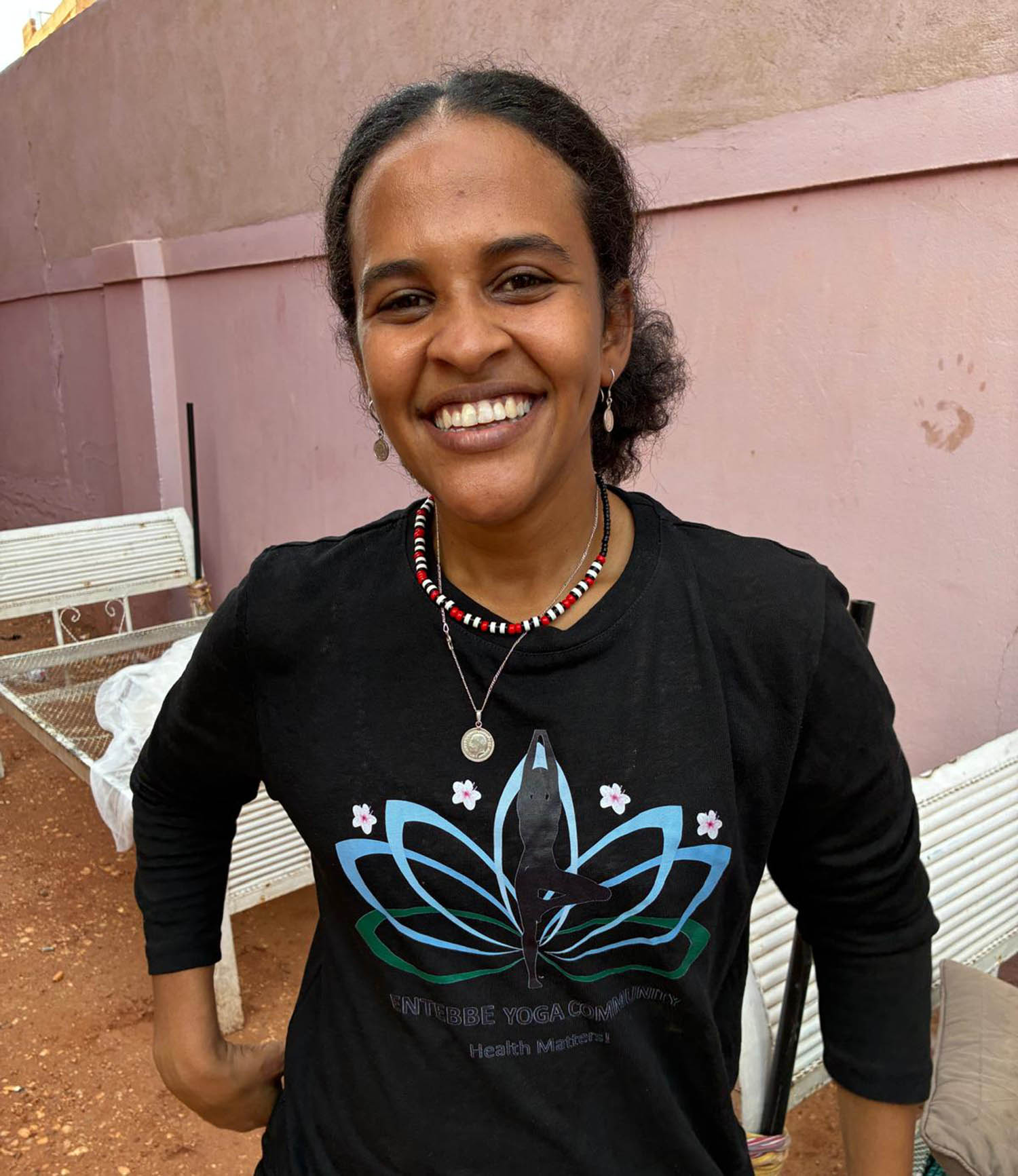
With western aid budgets cut and the UN floundering, many see the ERRs – which are flexible, reliant on diaspora and local funding, and built on a spirit of mutual aid and solidarity – as a model for the future of humanitarian relief. Against the odds, the leaders of the ERRs estimate they have helped 3 million Sudanese.
But it is the military that claims the role of civic guardian. “We are working on a recovery plan,” said Gen Ibrahim Jaber, one of three assistants to the SAF’s commander-in-chief, Gen Abdel-Fattah al-Burhan. Attired in a crisp uniform, Jaber was sitting in his newly refurbished Khartoum office, projecting the image of a man who represents a government with an army, not a militia such as the RSF.
On the sidelines of the UN general assembly last week, Donald Trump’s Africa adviser, Massad Boulos, met the “quad”; Egypt and Saudi Arabia, which support the SAF, and the United Arab Emirates, which – according to UN and other reports – arms the RSF. (The UAE routinely denies involvement, despite extensive evidence.)
An earlier joint statement called for a three-month humanitarian pause in fighting, as the start of a roadmap towards peace. Boulos said on Friday that the RSF had agreed to allow aid into El Fasher.
However, it seems unlikely that either side will reach a ceasefire without significantly more pressure, and the agreement of regional countries to stop providing arms. The RSF thinks it is on the brink of seizing El Fasher, while – having taken the capital – the SAF is determined to establish control across the rest of the country.
“It’s the responsibility of the Sudanese government to protect the Sudanese inside Sudan,” said Jaber. “If the militia doesn’t stop, how can we stop and let the Sudanese people suffer?”
According to human rights groups, the SAF and allied militia have committed atrocities – just not on the same scale as the RSF. The UN recognises SAF as the government, and Burhan has appointed a civilian prime minister. Civil society activists, however, are concerned about the return of the same Islamist politicians who were in office under Bashir.
Politicians who nurture resentment against the activists whose protests led to their downfall in 2019 have harassed volunteers. They have also tried to co-opt some ERRs, forcing them to relinquish their independence.
Tariq and her colleagues remain undeterred. “This country will not recover very soon,” she said. “It’s the normalisation of violence. But we need to reject this and go back to the very root of being human, which is to value other people, even if they’re your enemy.”
Photograph by Ivor Prickett/Panos Pictures/The New York Times. Other pictures by Lindsey Hilsum
